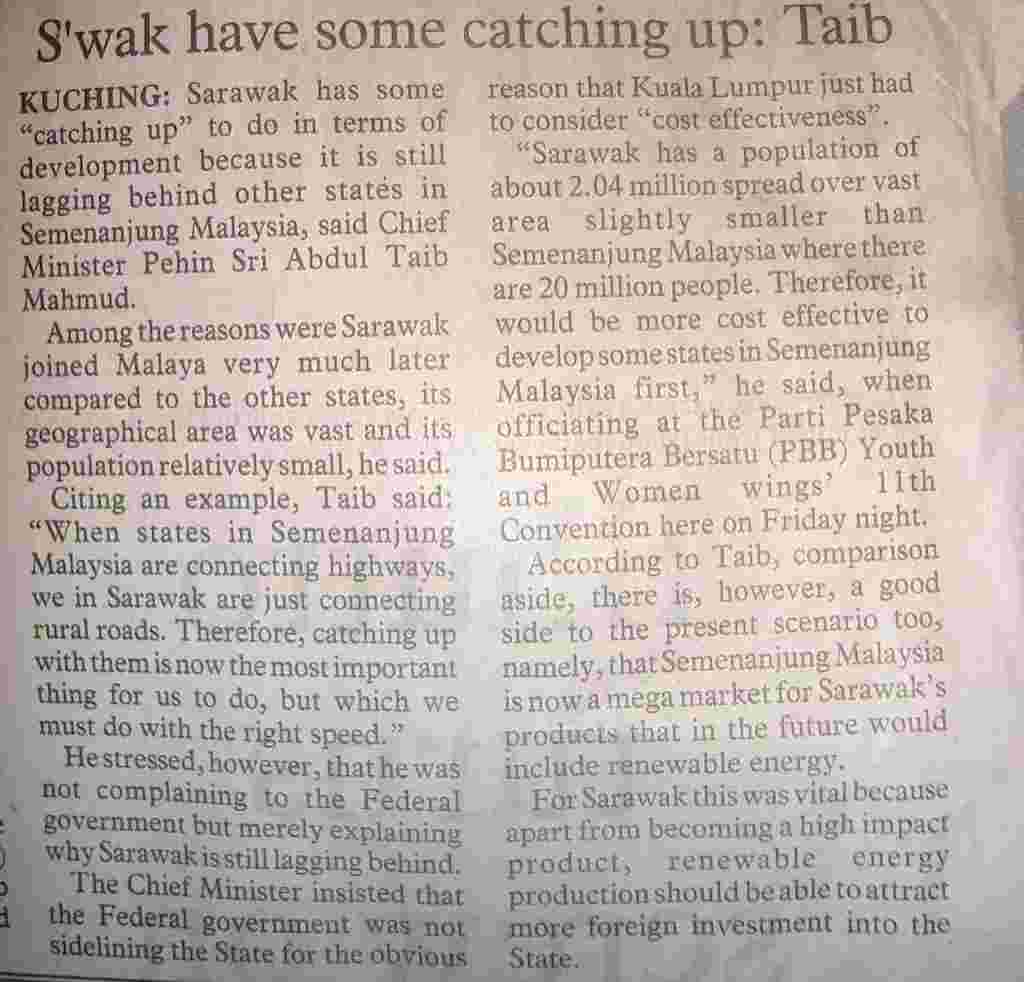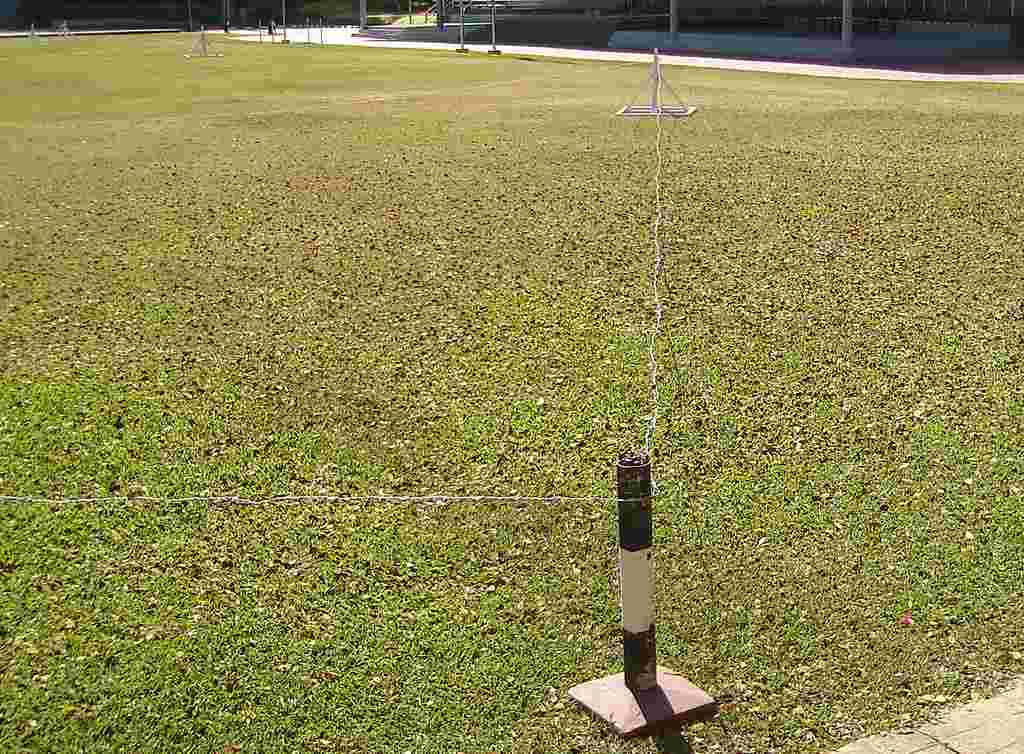How can you Malaysia exist without it being formed first?
How can you Malaysia exist without it being formed first?
Sabah and Sarawak formed Malaysia and later federated with the other States. Nothing special about that.
http://www.dailyexpress.com.my/news.cfm?NewsID=104268
Kota Kinabalu: A Kota Kinabalu-based legal consultant-cum-
economist claims both Sabah and Sarawak did not form Malaysia – as
propagated by politicians from both the Borneo states – but actually
joined.
Jeremiah Yee said the proof of his argument is "conspicuous by the
wordings in Article 1 of the Malaysia Agreement" which states: "… shall
be federated with the existing states of the Federation of Malaya … and
the Federation shall thereafter be called Malaysia"
"In Section 1 of the Malaysia Act that was passed by the British
parliament on 31 July 1963, it was also undisguised: "… to federate
with the existing states of the Federation of Malaya (in this Act
referred to as the Federation), the Federation thereafter being called
Malaysia …"
"In a nutshell, it is crystal clear that there was no new Federation but
an old one called Malaya which was later renamed Malaysia," Yee said.
He also said Deputy Chief Minister Tan Sri Joseph Pairin Kitingan should
advise the Sabah and Sarawak governments to jointly sue the British and
Malaysian governments in a London court, instead of blaming the
British.
"If Pairin thinks the British government should be held accountable for
the deterioration in Sabah including seeking interpretation of the
safeguards in the Malaysia Agreement, he should sue in a London court,
since the Malaysia Agreement was inked by their predecessors there in
1963," he said.
He was commenting on Pairin's blaming of the British Government when
debating the National Budget 2016 in Parliament, recently. Among the
perennial issues which continue to plague Sabah today include the
interpretation of the Malaysia Agreement 1963, and the 40pc revenue
entitled to Sabah, under the 48th Schedule in Inter-Governmental
Committee Report that has not been reviewed since 2004.
The Malaysia Agreement was signed in London on 9 July 1963 and is a
legitimate document in spite of overwhelming evidence suggesting
otherwise, he said.
To substantiate this, he pointed out that when the governments of
Britain, Malaya, Singapore, Sabah, and Sarawak signed the Malaysia
Agreement in London on 9 July 1963, the governments of Sabah and Sarawak
were actually still at that material time British colonial governments.
On another matter that crops up every year in August that Sabah gained
independence on 31 August 1963, Jeremiah opined that this is also not
true, citing that "self-government" is not independence as the British
flag "Union Jack" was only lowered for the final time in Jesselton at
midnight of 16 September 1963.
The departure of the last British Governor from Sabah took place in the
morning after the Proclamation of Malaysia was announced in the town
padang (now Padang Merdeka).
"Succinctly, there was never any formal declaration of independence on
31 August 1963 for Sabah even though there were shouts of "Merdeka" in
the town padang on 16 September 1963, but "Merdeka" from what when only
Malaysia was proclaimed?" he contended.
As much as he concurred with Pairin's lamentation that the formation of
Malaysia was done in a hurry, Jeremiah nonetheless pointed out that
after the Second World War ended, the British economy both in the United
Kingdom and the colonial empire was so drained to an extent that it
could barely sustain existing commitments then, let alone meet new ones.
"The only justifiable and viable thing for Whitehall to do at that time
was to let go of their colonies to new masters or local actors under the
guise of 'Merdeka' so that they could dispose of their assets and
businesses which include among others mines and estates and bring the
money back to mother England.
Jeremiah further opined that the Malaysia Project of the British
government was short-sighted, carelessly co-ordinated, inadequately
designed, and poorly executed, to say the least.
"For one among many indicators, look no further than the controversial
20-Points which have remained a unilateral list of political demands
largely unmet after 52 years," he cited.
On the 40pc entitlement from the net collection of federal revenue from
Sabah by the Federal government which has not been paid for decades, a
large portion of the claim, save for only a few years back, Jeremiah
opined that there's nothing much the State government could do as, it is
actually statutorily-barred.
"For this fiasco alone, who is to be blamed – the British government or
the government of Sabah? To me the answer is the latter because out of
ignorance it did not pursue the matter with the Federal government which
also conveniently kept quiet.
"For so many administrations under numerous chief ministers of which
some held the stewardship for 9 years or more and even set up think-tank
and paid high salary to its members for advising the Sabah government,
what happened?" he asked.




